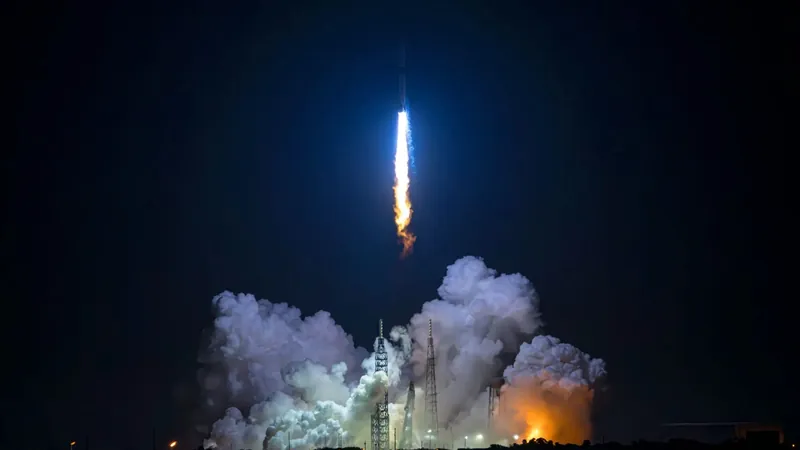
NASA Pioneers Bold Mars Mission with Blue Origin's New Glenn Rocket Launch!
2025-07-19
Author: Ying
Get ready for an electrifying journey to Mars! NASA's twin ESCAPADE (Escape and Plasma Acceleration and Dynamics Explorers) probes are nearly set to embark on a groundbreaking mission that promises to unlock the secrets of the Red Planet.
Originally slated for launch last October aboard Blue Origin's massive New Glenn rocket, the timeline took a detour. NASA opted to remove the probes from the inaugural flight in September, anticipating potential delays that could escalate costs. The New Glenn did make its debut, successfully lifting a test version of its Blue Ring spacecraft into Earth orbit on January 15, but its first-stage landing attempt at sea was unsuccessful.
After a period of uncertainty regarding the ESCAPADE mission's launch date, exciting news emerged! On July 17, Blue Origin officially announced that the ESCAPADE probes will be part of New Glenn's second-ever flight, scheduled for no earlier than August 15 from Cape Canaveral Space Force Station in Florida.
Though the launch has been pushed back from the initial late spring timeline, the anticipation continues to build. Blue Origin’s CEO, Dave Limp, commented, "This will be an exciting mission for New Glenn and Mars exploration. ESCAPADE is not only New Glenn’s first interplanetary mission but also the first multi-spacecraft orbital science mission to investigate the Martian magnetosphere. We are also hopeful to land and recover our booster for the first time. Mars, here we come!"
ESCAPADE isn't going into space alone; it will carry additional payloads, including a technology demonstration for satellite-communications innovator Viasat, along for the ride. The two probes, aptly named Blue and Gold, were developed by Rocket Lab in California and will be managed by the University of California, Berkeley's Space Sciences Laboratory as part of a mission expected to cost $80 million.
The ESCAPADE mission aims to answer pivotal questions about Mars, such as how the planet's magnetic field interacts with particle flows, the dynamics of energy and matter transport from the solar wind through the magnetosphere, and the exchange of energy with the Martian atmosphere. As the countdown to launch begins, all eyes will be on this historic mission that not only advances our understanding of Mars but also the capabilities of new space exploration technology.




 Brasil (PT)
Brasil (PT)
 Canada (EN)
Canada (EN)
 Chile (ES)
Chile (ES)
 Česko (CS)
Česko (CS)
 대한민국 (KO)
대한민국 (KO)
 España (ES)
España (ES)
 France (FR)
France (FR)
 Hong Kong (EN)
Hong Kong (EN)
 Italia (IT)
Italia (IT)
 日本 (JA)
日本 (JA)
 Magyarország (HU)
Magyarország (HU)
 Norge (NO)
Norge (NO)
 Polska (PL)
Polska (PL)
 Schweiz (DE)
Schweiz (DE)
 Singapore (EN)
Singapore (EN)
 Sverige (SV)
Sverige (SV)
 Suomi (FI)
Suomi (FI)
 Türkiye (TR)
Türkiye (TR)
 الإمارات العربية المتحدة (AR)
الإمارات العربية المتحدة (AR)